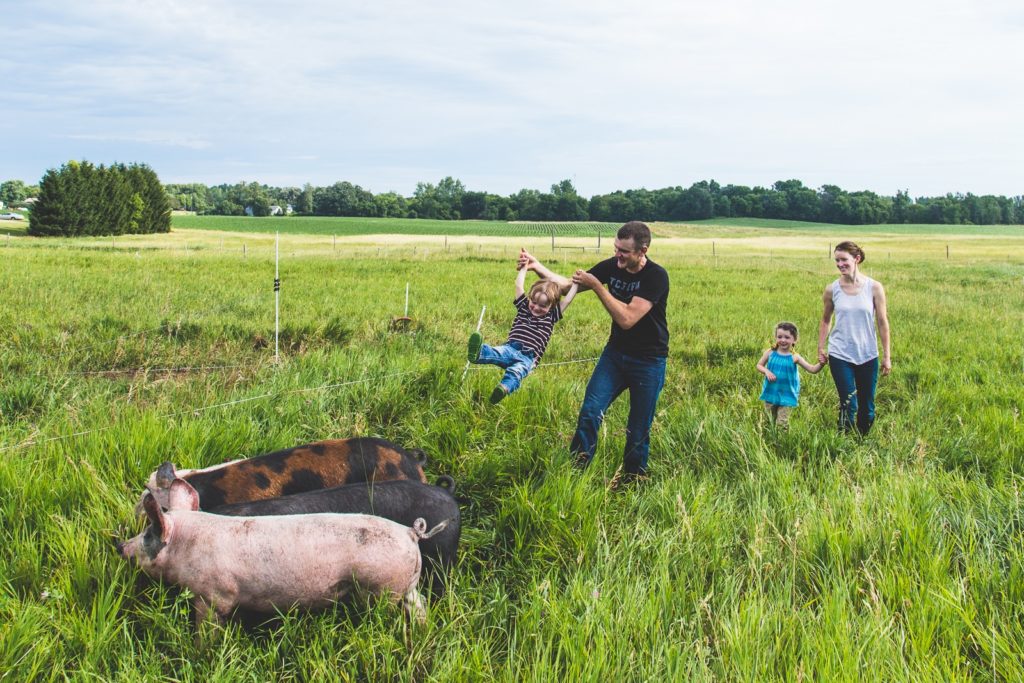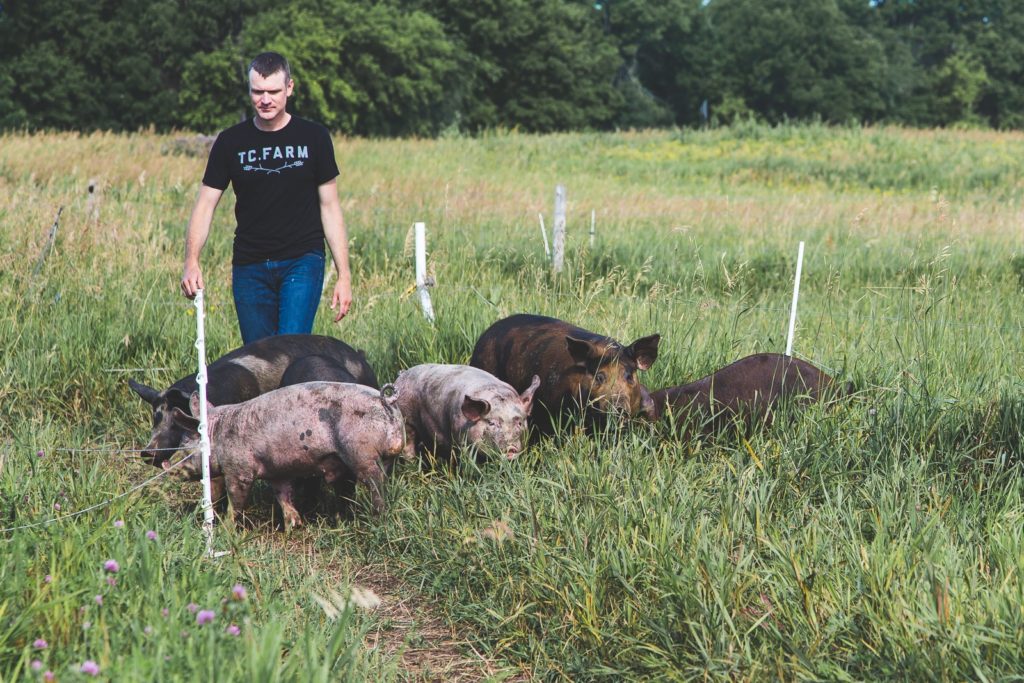The Environmental Impact of Pasture-Raised Pork

There are many different factors that dictate the food that we put in our carts each time we visit Lakewinds. Whether it’s fruit, vegetables, eggs, dairy, meat, grains, one important issue that crosses all of them is the environmental impact.
Especially with meat, confinement/conventional means of raising the animals compared to grassfed, pasture raised has incredibly different results for the environment. Which is just one of the reasons we are so grateful and fortunate to work hand in hand with TC Farm, bringing pasture raised pork to you, through our exclusive arrangement.

Let’s take a closer look at a few of these differences, and how you are helping the environmental landscape when choosing to put TC Farm’s pork into your weekly meal plan.
- To begin with, a diet of grazed grass and other pasture inhabitants requires much less fossil fuel than a feedlot diet of dried corn and soy. In fact there is a domino effect when animals are fed with conventional crops. The fields that these are grown in are treated with fossil-fuel based fertilizers, sprayed with pesticides, and planted, tilled, and harvested with heavy equipment. Each of these operations requires non-renewable fuel. Then the feed is shipped to manufacturers where more processing is done, and finally shipped to the farms, using yet more fossil fuel.
- On pasture, grazing animals spread their manure over the soil where it becomes a natural source of organic fertilizer. This improves the quality of the grass, which increases the rate of gain of the animals. And because the fields are left to grow naturally, the ground is covered with greens through spring, summer, and fall, which in turn harvests solar energy and holds on to topsoil and moisture.
- Grazing lands provide much-needed habit for wildlife, and they reduce water runoff. This helps keep our natural watersheds cleaner and safer for both wildlife and human use. And the natural beauty adds so much to the landscape and personality of our roadways.
- A huge benefit of the open pasture is that it removes carbon dioxide from the atmosphere more effectively than any land use, including forestland and ungrazed prairie, helping to slow global warming.
And perhaps the biggest difference, even among other pasture raised pork, is that TC Farm supplements only with 100% organically raised grains. Most are certified, but they also support farms that are being transitioned to certified status (already non-GMO and never apply toxic fumigants). Furthermore, to reduce the environmental and health damage caused by organic corn and soy, they raise all of the pork without soy and very, very little corn.
Compared with grazed pasture, gently sloped land devoted to conventional soy and corn production loses six times more topsoil each year. Between the erosion and the nutrient losses from this way of farming, it is critical that more go the way of Jack and his team at TC Farm. And although it may seem cheaper to buy conventional meat, the true cost is actually hidden. It’s much more expensive for everyone in the long run when you take into the consideration air quality, water, soil, and public health.
And it impacts us all, full circle. Which is why we are so grateful to bring you TC Farm pork, protecting the environment, respecting Minnesota native prairies, and putting ethical and delicious meat on our tables.
Find locally grown, grass-grazed heritage pork at these Lakewinds locations.
